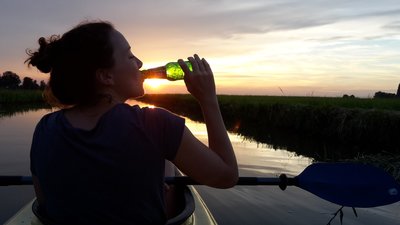From weather predictions and consequent adaptations, to seed-sowing and crop harvesting, until the transport and packaging of processed foodstuffs: The Internet of Things can be useful in the entire agri-food chain, from farm to fork. Or should we say farm to glass, as smart technologies can also be involved in the supply chain of wine and beer, bringing happiness to many Europeans consumers, as well as the producers of the drinks.
The company Binary Beer develops smart beer kegs that report how much beer is left and how the beer is being stored. It doesn’t matter where the kegs are, whether at a store, cellar or in a bar on a busy night with the beer flowing. The kegs are equipped with wireless sensors, monitoring and transmitting the level of the beer 24/7, so bartenders will always know when they are almost running out of beer and their taps never run dry.
Also, the sensors monitor the environmental conditions under which the kegs are stored, this can be transmitted to the brewer in real time, regardless of the kegs’ location in the supply chain. This helps with every step in the supply chain, to continuously check whether the beer has been transported and stored in the right environment, which also defines the freshness and thus the quality of the beer. Binary Beer has developed a mobile reporting app to go along with the smart kegs, which can show the data the sensors are collecting in a clear manner, to everyone along the supply chain.
To continue with the bottling of alcoholic drinks, smart technologies have been developed for wine as well. An example is a smart cork prototype, monitoring the structural health, the ullage and the level of light inside the cask and the storage temperature. The advantages of using a smart cork is that wine makers can monitor the status of the wine at any time, allowing them to immediately intervene when an issue is detected.
Another example of smart technologies in alcoholic beverages is Thinfilm, used by Diageo in their ‘smart bottles’. It uses extremely thin, electronic sensors that can tell if the bottle has been opened and where it currently is in the supply chain. Customers can scan the bottle with their smartphone, allowing the brand to send them information. This technology can also aid in combating counterfeit wine, which is a major problem in some parts of the world. Thinfilm helps in proving authenticity of the product, thus ensuring quality of the wine as well.